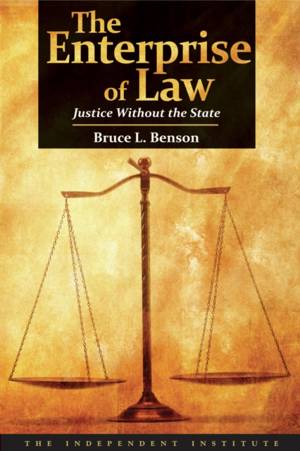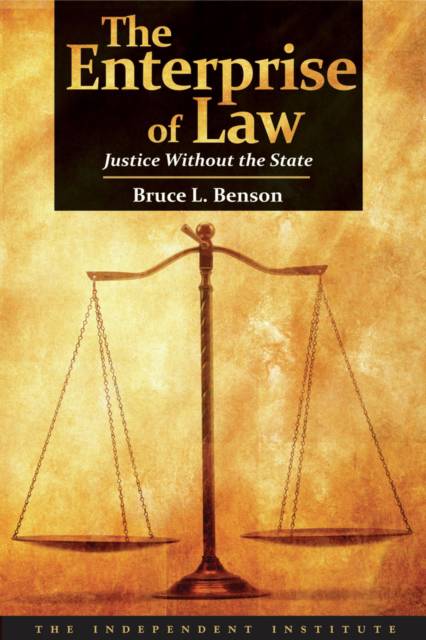
- Afhalen na 1 uur in een winkel met voorraad
- Gratis thuislevering in België vanaf € 30
- Ruim aanbod met 7 miljoen producten
- Afhalen na 1 uur in een winkel met voorraad
- Gratis thuislevering in België vanaf € 30
- Ruim aanbod met 7 miljoen producten
Zoeken
€ 36,95
+ 73 punten
Omschrijving
Defenders of the state's monopoly on lawmaking and law enforcement typically assume that any alternative arrangement would favor the rich at the expense of the poor--or would lead to the collapse of social order and ignite a war. Questioning how well these beliefs hold up to scrutiny, this book offers a powerful rebuttal of the received view of the relationship between law and government.The provision of justice and security has long been linked in most people's minds to the exclusive province of government monopolies. However, in this path-breaking book, Benson shows that a system of market-based institutions, rooted in the legal principle of personal accountability under a rule of law in all aspects of criminal justice, have and can deliver those services on their own, without the aid of taxation and a coercive state monopoly on the establishment and enforcement of law. In The Enterprise of Law, Benson offers a powerful rebuttal of the received view of the relationship between law and government. The book brilliantly shows that non-state institutions have and do fight crime, resolve disputes, and render justice more effectively than the state because they have stronger incentives to do so. The book offers a host of landmark findings, and here is just a sampling: The rapid recent growth of private-sector security and conflict resolution continues the effective legacy of private crime control and the common law. Protections for individual rights and private property are not the exclusive purview of government-run legal systems. Privatizing security and dispute-resolution services and contracting out to the private sector, can offer tangible benefits--namely better and more just services at lower costs.
Specificaties
Betrokkenen
- Auteur(s):
- Uitgeverij:
Inhoud
- Aantal bladzijden:
- 416
- Taal:
- Engels
Eigenschappen
- Productcode (EAN):
- 9781598130447
- Verschijningsdatum:
- 1/07/2011
- Uitvoering:
- Paperback
- Formaat:
- Trade paperback (VS)
- Afmetingen:
- 152 mm x 226 mm
- Gewicht:
- 657 g

Alleen bij Standaard Boekhandel
+ 73 punten op je klantenkaart van Standaard Boekhandel
Beoordelingen
We publiceren alleen reviews die voldoen aan de voorwaarden voor reviews. Bekijk onze voorwaarden voor reviews.







